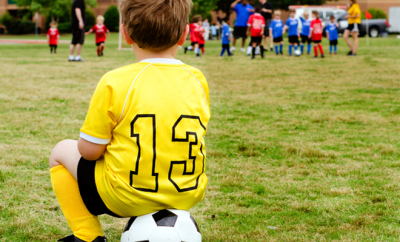
Mindful Parenting
Mindfulness is the capacity to be fully present with one’s actual, moment-to-moment experience as it is arising, with kind attention, without the mind trying to make it different. More often than not, we are on “automatic pilot,” mindlessly driven by mental patterns, preoccupied with a future that never quite arrives and a past that is no longer happening. As a result, we often feel stressed, anxious, depressed out of sync and exhausted. Mindfulness meditation practices help to restore and strengthen the body/mind connection from within, in the moment, increasing health and well-being, regardless of external conditions.
As parents, perhaps the most precious thing we can give our children is the gift of our full presence, in the moment. This is the deep intention and invitation for parents as they make space for mindfulness practice in their lives. Mindful parenting takes to heart the deep truth that we can only give to our children what we have given first and fundamentally to ourselves.
As we become more aware of our own deepest needs through practice, mindful parenting also involves decoding and addressing the deeper needs of our children, rather than getting mindlessly caught up in and reactive to surface behaviors. Therefore, the cultivation of self-compassion/love, healthy self-acceptance and self-awareness are essential components of skillful and effective mindful parenting. Mindful parenting involves the “inner work” of coming home to oneself as an authentic human being for the benefit of all. As parents learn to open and “come home” more and more of their unique wholeness, letting go of unrealistic expectations, they are more available for their children, seeing and loving them more and more as they really are. Through both daily formal and informal practices, mindful parenting focuses on managing strong emotions, reactivity and stress, improving mindful communication, honoring sovereignty, recognizing and actively reshaping one’s maladaptive mental patterns, as well as cultivating compassion, lovingkindness and self-care.
Here are five main tenets of mindful parenting:
1. Make space for just being, every day
Our lives are only lived in moments. Mindful parenting depends on being more present, so establishing a daily mindfulness practice is considered key. Simply sit for 5-30 minutes every day, at the same time and place, bringing awareness to the breath in the body as a natural, physical, felt experience. When the mind wanders (which it will!), don’t make it a problem. Simply notice when this happens, let go of that “train” of thought, and gently bring your awareness back to the anchor of the breath in the body, again and again. Being present requires maintaining the mind/body connection, in awareness. Research shows that “mind wandering,” i.e. when our mind is caught up in thoughts of the future or past, separated from what is really happening in the body, our health and well-being are compromised. So, it is so important to just be, in the moment, as you truly are. We tend to abandon ourselves all day long, through activity, distractions, pressures and demands, mindlessly driven. The greatest gift we can give our children is our full presence. We must begin with ourselves first. Being present, modeling this capacity for your children, is priceless.
2. Mindfully manage your stress
As parents, we are often living our lives running on empty, over-scheduled, in a constant state of low-grade stress. As a result, we rarely bring our “best selves” to the interactions with our children. As the mind/body connection becomes strengthened through mindfulness practice, it becomes possible to actively track and notice stress or imbalance in the body/mind, for any reason, as we are going about our day. We can actually shift from a mindlessly reactive and stressed mode to a mindfully responsive mode by using the STOP acronym below. You can use this in the car pool lane, getting the kids ready for school, etc…
S- Stop. Whenever you notice stress or imbalance, simply pause in awareness.
T- Take a breath. Simply bring your awareness into the breathing body, just letting the sensations of the breath move into the forefront. Also, notice how your mind begins to settle a bit, bringing more clarity. Breath awareness actually harmonizes the cardiovascular systems in the body, while also calming the “alarm” centers in the more primitive parts of the brain, restoring full brain function. When we are stressed, we can’t think clearly or see any situation accurately.
O- Observe. Just notice how the breath begins to naturally bring balance to the systems of the body. Let this be felt. Also, look around. What is really happening, in the moment?
P- Proceed. Having shifted to a more mindfully responsive mode, take an action that is more skillful, appropriate and best attuned to your situation.
3. Embrace the model of the “good enough’ parent
Often, we are often holding ourselves to too high a standard, striving to be the “perfect” parent. Mindful parenting embraces the reality and wisdom of the “good enough” parent, acknowledging that regardless of our best intentions, moments of imperfection and failure are unavoidable. So, as parents, how we navigate these moments is an important aspect of mindful parenting. Our children need us to fail, at times, otherwise, they cannot separate from us developmentally. Also, if we try to deny this reality, our children are not given an authentic model of what it is to be human, warts and all. When these inevitable moments of imperfection and failure occur, they become opportunities for compassion, learning, repair, forgiveness, humor, honesty and kindness. It goes without saying that this needs to be conveyed in developmentally appropriate ways.
4. Honor your children’s sovereignty
Basically, what all children truly need is to be seen and known, as they really are, separate from their parents. It is therefore crucial that we establish healthy boundaries between ourselves and our children, allowing for clear seeing and knowing. Honoring our children’s sovereignty is not about giving them unbridled freedom or too many choices. It is about bringing more awareness to our own unmet needs, agendas, issues, unfinished business and thwarted dreams. Otherwise, they all too easily get projected onto our children. This points to the “inner work” of mindful parenting, and our ability to hold all of this as separate in awareness. We need to take responsibility for what is unfinished in us, rather than burdening our children. Can we truly see, value and love our children as they really are, different and quite separate from us? Many parent/child conflicts involve a lack of clear boundaries and emotional separation on the parent’s part. What they need and what we need, can often be at odds. The idea is to learn to acknowledge and address all these needs with more skill, understanding and grace in mindful awareness.
5. Cultivate kindness and compassion
Nothing is more humbling, more challenging and more heartbreaking than parenting. There is no quitting and no hiding and no “finish line.” Therefore, as an act of self-preservation, we must actively cultivate kindness and compassion in the moment, mostly for ourselves. More often than not, our children get the best of us, and we can be left feeling empty and resentful. Mindfulness practice is often referred to as an act of “self-love” or ongoing “self-parenting.”
Often, we are looking outside of ourselves for love, approval and care. But, through mindfulness practice, we can come home to ourselves, getting on our own best side, attending to our own needs in a way that only we can do for ourselves. Parenting can be so hard, so the intention is to not make it worse. We learn to let go of unrealistic expectations, to love and accept ourselves more and more as we really are, finding more and more wholeness. Our children are in need of our unconditional love. But, we cannot give what we do not possess. Therefore, we must begin first with ourselves, experiencing more and more kindness, compassion and self-acceptance. As a result, this begins to naturally flow to our children, more and more.
First published at Huffington Post.







